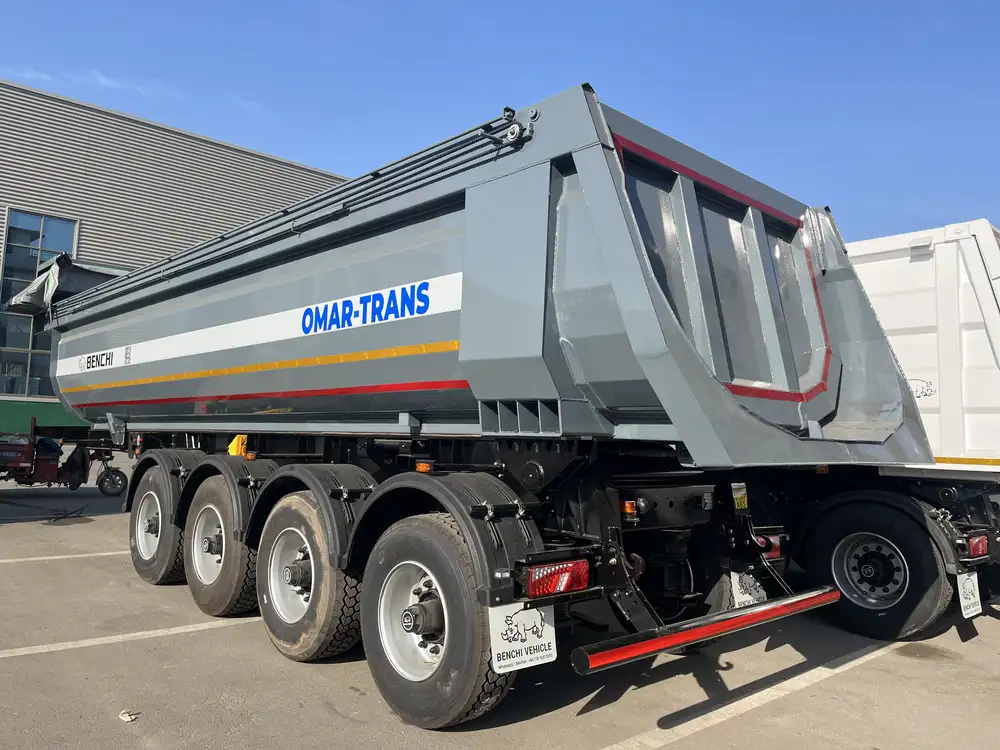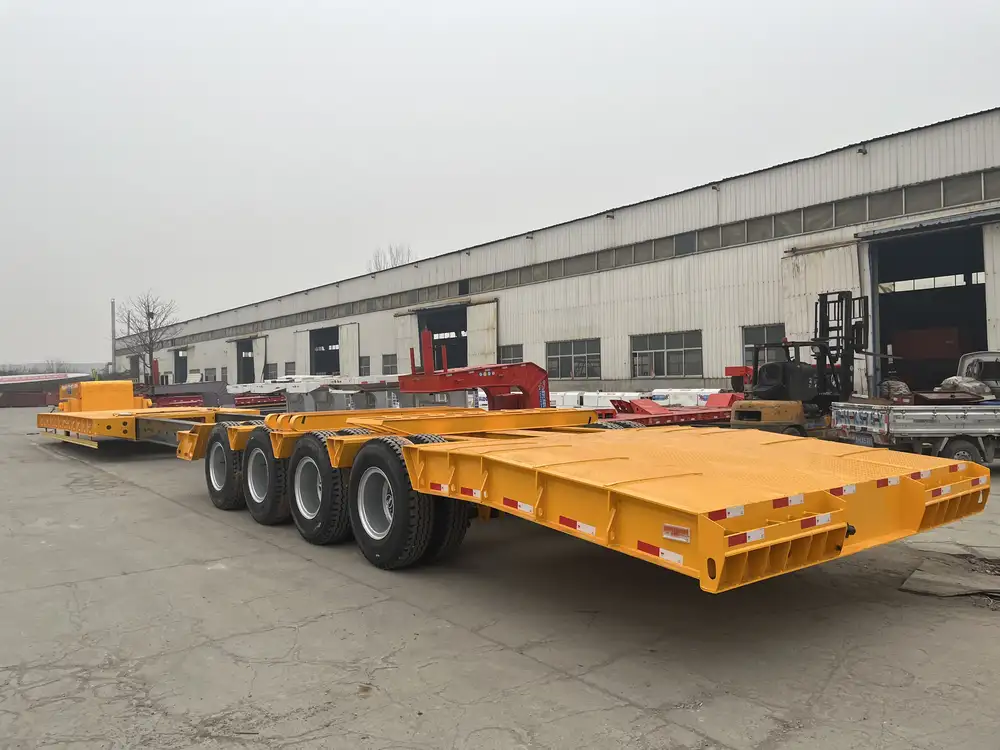When it comes to optimizing the performance and longevity of your dump trailer, the selection of the correct battery size plays a pivotal role. In the rugged world of hauling heavy loads across varied terrains, understanding your dump trailer’s battery requirements can enhance operational efficiency and minimize potential downtime. This guide dives deep into the factors influencing battery selection, the types of batteries available, how to calculate the power needs of your dump trailer, and other vital aspects to ensure you make an informed decision.
Understanding Your Dump Trailer’s Electrical Needs
Before selecting a battery, one must first comprehend the electrical requirements for a dump trailer. At the heart of a dump trailer’s operation lies the hydraulic system, which requires a reliable power source.
Key Components Drawing Power
- Hydraulic Pump: The pump activates the hydraulic cylinders responsible for dumping the load. It generally requires a significant amount of power to operate effectively and can sometimes demand a surge of electricity when initially activated.
- Lights: Depending on your trailer, lights may also draw power for visibility and safety during nighttime operations.
- Additional Accessories: If your trailer is equipped with extras such as tilt mechanisms, winches, or in-cab controls, these will add to the overall power requirements.

Determining Battery Size: The Formula
To ascertain the correct battery size, understanding amp-hour (Ah) capacity is essential. The amp-hour rating indicates how much current a battery can supply over a given period.
Calculating Power Requirements
Find Your Power Consumption:
- Hydraulic Pump: Typically uses around 12-20 amps.
- Lights: About 5 amps.
- Other Accessories: Varies by setup but generally around 2-10 amps.
Example Calculation:
- Hydraulic Pump: 15 amps (for 10 minutes) → 2.5 Ah
- Lights: 5 amps (for 30 minutes) → 2.5 Ah
- Accessories: 10 amps (for 15 minutes) → 2.5 Ah
Total Power Consumption: 7.5 Ah for one cycle.
Estimate Usage Frequency:
- If you plan to operate the trailer twice a day, the daily requirement becomes 15 Ah.
Factor in Reserve Capacity:
- To avoid fully discharging the battery (which can reduce its lifespan), incorporate a 20% buffer → 15 Ah x 1.2 = 18 Ah.
Conclusion of Power Calculation
Given these calculations, a battery rated for at least 18 Ah would be ideal for reliable operation.

Choosing the Right Battery Type for Your Dump Trailer
Once the power requirements are established, the next step is to evaluate the various battery types available.
1. Lead-Acid Batteries
Lead-acid batteries are the most common type used in dump trailers. They come in two primary forms:
Flooded Lead-Acid:
- Advantages: Cost-effective, reliable, and widely available.
- Disadvantages: Requires regular maintenance and can spill if improperly handled.
AGM (Absorbent Glass Mat):
- Advantages: Sealed, leak-proof, and maintenance-free. They handle deep discharge better and have a longer life span.
- Disadvantages: Higher cost compared to flooded types.
2. Lithium-Ion Batteries
An increasingly popular option, lithium-ion batteries offer several advantages:
- Higher energy density: More power with less weight.
- Longevity: Typically last longer than lead-acid batteries, often exceeding 2000 charge cycles.
- Faster charging: Can charge significantly quicker compared to traditional batteries.
However, they come with a higher price tag, so it is essential to assess them against your budget and usage needs.

Comparative Analysis of Battery Types
| Battery Type | Cost | Weight | Lifespan (Cycles) | Maintenance | Power Output |
|---|---|---|---|---|---|
| Flooded Lead-Acid | Low | Heavy | 300-500 | High | Moderate |
| AGM Lead-Acid | Medium | Moderate | 500-800 | Low | Moderate |
| Lithium-Ion | High | Light | 2000+ | Very Low | High |
Choosing Battery Size for Different Dump Trailer Applications
Depending on your specific application, the dimension of the battery might vary significantly. Consider the following categorizations:
Light-Duty Dump Trailers
For light-duty trailers, perhaps used for small residential tasks, a battery ranging between 12-20 Ah is usually sufficient. These setups are often fitted with smaller hydraulic systems, requiring less energy.

Medium-Duty Dump Trailers
Medium-duty applications, such as commercial landscaping or small construction jobs, typically necessitate batteries around 20-50 Ah. These systems may have additional features like more extensive lighting or auxiliary equipment, demanding higher power.
Heavy-Duty Dump Trailers
Heavy-duty trailers, commonly employed for construction or industrial usages, should be equipped with batteries rated 50 Ah and above. Given their extensive operational demands, opting for high-capacity batteries, possibly in the lithium-ion category, could enhance performance significantly.
Deep Cycle vs. Starting Batteries: What’s the Difference?
It’s paramount to distinguish between deep cycle and starting batteries:
- Deep Cycle Batteries: Designed to be discharged and recharged multiple times, ideal for uses like hydraulic pumps. They offer sustained power over a long duration.
- Starting Batteries: Engineered for quick bursts of energy to start engines, they aren’t suitable for continuous operation as required in dump trailers.
For dump trailers, deep cycle batteries are strongly recommended due to their design that accommodates prolonged energy usage.

Maintenance Tips for Optimal Battery Lifespan
Irrespective of the battery type selected, maintaining the battery properly can significantly enhance longevity and reliability.
Best Practices for Battery Care
- Regular Checkups: Inspect battery terminals for corrosion and perform cleaning when necessary.
- Charge Battery Fully: Avoid leaving the battery in a discharged state for lengthy periods as it may lead to sulfation in lead-acid types.
- Temperature Considerations: Batteries operate optimally within a specific temperature range; avoid exposing them to extreme weather conditions.
Troubleshooting Common Battery Issues
When operating dump trailers, certain battery-related issues might arise. Understanding these can save you time and ensure smooth operation.

Symptoms of Battery Problems
- Difficulty Starting Hydraulic Systems: Indicates insufficient power or failing batteries.
- Slow Operation of Hydraulic Functions: May point to low capacity or high resistance within the battery.
- Corrosion at Terminals: Signals a potential failure, requiring immediate attention.
Quick Fixes
- Check and Clean Connections: Ensure all connections are tight and free from corrosion.
- Test Battery Voltage: Use a multimeter to assess charge levels. If below recommended levels, recharge or consider replacement.
Conclusion
Choosing the right battery size for your dump trailer is not merely a technicality; it’s an essential investment in your operational efficiency and reliability. By understanding the power requirements, assessing types, and maintaining your battery, you can ensure sustained success and mitigated downtime. Selecting the perfect battery could be a game changer for the performance of your dump trailer, allowing you to navigate your tasks smoothly and efficiently.
Armed with this guide, you are now capable of making a well-informed decision that aligns with your specific needs—propelling your business to new heights while maintaining the integrity of your operations.



